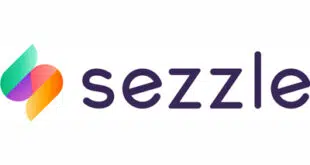With President Obama in the midst of a historic trip to Cuba Monday, payments companies ranging from Stripe to PayPal to Western Union are eyeing new transaction growth as relations thaw between the U.S. and the island nation just 105 miles from Florida.
Online payments provider Stripe Inc. announced that its Stripe Atlas service, which it introduced in February to help foreign entrepreneurs looking to set up U.S. businesses obtain various legal, business, and transaction services, including processing from Stripe, is now available in Cuba. In a blog post, San Francisco-based Stripe’s chief executive, Patrick Collison, said the expansion of Atlas is possible because the U.S. Treasury and Commerce departments last week announced the lifting of some restrictions on access to U.S. financial services by Cuban nationals.
“This removes one of the biggest impediments to Cubans participating in the global financial system,” wrote Collison, who flew to Cuba this past weekend in a private plane. “It also removes one of the biggest barriers to entrepreneurship in Cuba.”
He later wrote, “we’ll be working as quickly as possible with our partners, including Silicon Valley Bank, to enable Cuban entrepreneurs to easily incorporate U.S. companies, set up U.S. bank accounts, and use Stripe to start accepting payments from customers around the world.”
While Obama’s recent Cuban actions open up new possibilities for U.S.-based payments firms, full-fledged financial ties between the U.S. and Cuba won’t be possible until the 1960s U.S trade embargo against Cuba’s Communist regime is lifted, a change that requires an act of Congress.
Meanwhile, among the delegation of American business executives accompanying Obama to Havana is PayPal Holdings Inc. chief executive Dan Schulman.
“Our invitation to participate, as one of a small number of U.S. companies, is a recognition of our commitment to financial participation and our reputation as a known global payments platform to help expand economic opportunities,” Schulman wrote in a Sunday blog post. “It’s also an incredible opportunity to experience Cuba in person as the normalization of ties between our two countries makes it easier for Cuba to connect to the global economy.”
Schulman noted that San Jose, Calif.-based PayPal could connect Cuban small businesses to international markets. He also said Americans send $2 billion in remittances to Cuba annually, accounting for 3% of the Cuba’s gross national product.
“A natural first step would be to bring Xoom, our global money-transfer service, to Cuba,” he wrote. “Today, remittances to Cuba are time-consuming and expensive. Xoom will help make it easier, faster, and more affordable for Cubans to gain access to funds.”
PayPal isn’t the only wire-transfer provider eyeing Cuba. The wire-transfer industry’s biggest firm, Englewood, Colo.-based The Western Union Co., which already has some operations on the island, said Monday that in the second quarter it will begin global remittance services into Cuba in the wake of the rules relaxations announced last week by the Obama administration. Remittances can now be sent from the U.S. to family members and other Cuban nationals for family expenses and personal support for private economic activity, the company said.
“As the first U.S. company with scale to move money from across the world to Cuba, we welcome the regulatory and policy changes put in place by the U.S. government that allow us to offer these services,” Odilon Almeida, Western Union’s president of the Americas and European Union, said in a statement.
Funds moved by Western Union will go directly from the sender to the receiver with no middle intervention, the company said. Western Union said it has 490 agent locations spread across all of Cuba’s 16 provinces.





